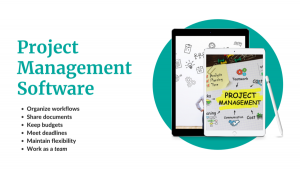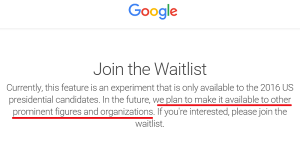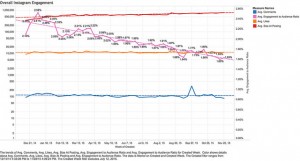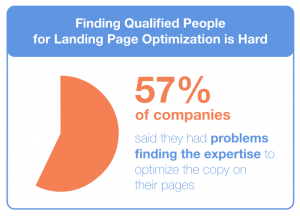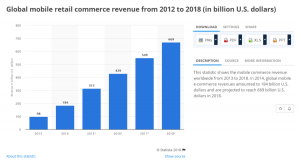Author Thomas Pynchon wrote: “If they can get you asking the wrong questions, they don’t have to worry about answers.”
This quote is socially charged. Nevertheless, in this or any event, market research comes to the rescue. Asking the right question is central to the industry—part of the continued epic of understanding the intimate desires and motivations of various demographics.
qSample has provided research on keeping questionnaires for surveys as concise and straightforward as possible—all to understand the complex behaviors of humans.
Effective questionnaires are especially vital in an era where mobile devices erode both time and space for executing surveys. The mobile ecosystem is just smaller and consumer attentions spans are getting shorter. Mobile surveys are on the rise, so it’s prudent to embrace this new tech normal. As one market researcher put it:
The trend is clear that more and more surveys are being taken on smartphones and tablets. Desktop computers still account for the majority of responses, but for any given project market researchers can now expect up to 40% response on smartphones. This percentage will likely continue to increase in coming years.
So keep it simple, and start with simple. As Leonardo da Vinci once said: “Simplicity is the ultimate sophistication.”
To assist with this approach for suitable marketing questionnaires, thought leaders in marketing have revealed essentially questions that can become the cornerstone for any type of survey (and beyond).
1. What’s happening in your life that brought you here today?
This wording is found in noted copywriter Joanna Wiebbe’s book, Where Stellar Messages Come From. You can modify this open-ended question depending on your brand or forum. It may seem odd in a provided online survey, but the phrasing can be edited to inquire at what brought a person to a particular store or website.
The question is most effective in brief pop-up surveys, though. It takes an immediate snapshot of an individual’s state of mind, as well as how it relates to a brand. Information about a social media link or frustration at another product bringing them to your fiefdom can be pure gold.
2. Were you able to complete your task today?
This straightforward inquiry also unlocks several dimensions of a respondent or potential customer. As bestselling author and marketing guru, Avinash Kaushik, states in his blog:
An extremely simple question that asks the survey takers to self report their own perception of your website’s effectiveness in helping them complete their tasks….We have the customers voice telling us exactly how well the website is performing when it comes to delivering the goods.
Again, this can be applied to surveys. It’s surveying the survey. Market researchers should always be auditing their own work, and who better than their respondents fresh in the study.
3. Would you recommend us to a friend?
This question may sound obvious, yet marketers sometimes miss this elephant in the research room.
In fact, there might not be another better question in marketing. Bestselling loyalty expert Fred Reichheld agrees with this, calling it the ultimate question. He expands this notion fully in his book entitled (surprise) The Ultimate Question.
As with the other questions and repeating myself, the wording and context may be altered to suit the needs of the brand.
Sean D’Souza of Copyblogger offers some variable and follow-ups:
– What was the obstacle that would have prevented you from buying this product?
– What did you find as a result of buying this product?
– What specific feature did you like most about this product?
– What would be three other benefits about this product?
– Would you recommend this product? If so, why?
– Is there anything you’d like to add?
No, I can’t add anything else to the sound advice in this section.
4. Any question that isn’t just yes/no or either/or
Not allowing options like “I don’t know” or an open-ended space in survey questionnaires is dangerously close to a leading question. Some experts say it is a leading question.
Inc.’s Jeff Haden is one such example:
Either/or questions, just like leading questions, assume some answer. Instead of sharing options, just state the problem. Then ask “What do you think?” Or “What would you do?” Or “How should we handle this?
Haden further states there is always an undisclosed option, an idea researchers might be missing, and it’s important to leave a space to let it flow out of respondents.
5. The questions you ask yourself before the survey
This thought leadership insight comes from qSample’s own president, Rudly Raphael. He states: “In my opinion, there are three questions that a researcher should ask before any study.” These are:
– Who is your audience?
–What is the objective of your survey/research?
– What are your biases (and what can you do to avoid them from polluting) the survey?
In other words, you have to know yourself as intimately as you expect to know your audience. If you assume you don’t have a bias, according to Raphael, you probably do and it’s time you get some feedback on others in the company or project.
Conclusion
These five questions (or more like question narratives) incorporate the same the keynotes: empathy, directness and engagement. They tend to spark the best possible data from respondents.
They can also be utilized by sales people.
Obviously, market researchers are required to mine deeper and into other spectrums of the respondent’s mind. As Raphael says:
The best questions for online surveys are challenging because it depends on the topic. Researchers design surveys for a myriad of a myriad of verticals like products, services, intelligence, etc. An IT question about network adapters will not be helpful to someone writing a finance survey.
Nevertheless, these questions serve as cornerstones for surveys or at least tools for that essential simplicity in a mobile era.
They are the right questions to gaining the right answers in your research.
Business & Finance Articles on Business 2 Community(106)
Report Post